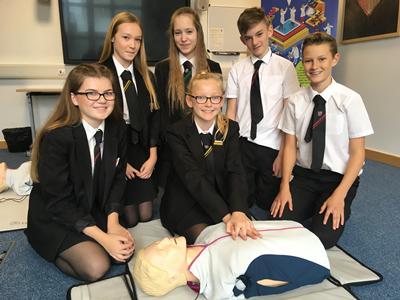Hundreds of children learn vital lifesaving skills at LifeLab

ALMOST 2,000 school children have been taught vital lifesaving skills in the past year, thanks to LifeLab. The innovative education programme teaches young people about the science behind health messages in an effort to improve children’s health.
Supported by the charity Wessex Heartbeat, the initiative sees a team from the University’s Faculty of Medicine and Education School working with teachers to deliver a series of lessons in-school, before pupils visit the state-of-the-art LifeLab teaching space at the National Institute for Health Research Biomedical Research Centre at University Hospital Southampton.
Youngsters get the chance to learn about how health is measured and take part in a series of hands-on experiments in custom-built laboratories.
Part of the programme includes a session on CPR training which is supported by the British Heart Foundation.
It means that for the last academic year2016/17, 1,894 secondary school aged children, largely from across Hampshire, have been trained in lifesaving skills.
The figure has been released ahead of this year’s Restart a Heart Day, which is aimed at training as many schoolchildren as possible in CPR.
Manager of the LifeLab programme Dr Kathryn Townsend-Woods, said: “The BHF estimates that only around 2 per cent of young people currently receive CPR training at secondary school –we have worked with UHS resuscitation officers to put together a session which the students who come to LifeLab can take part in. It is invaluable for them to have this experience, as less than half have learnt CPR before.
Since it opened in 2013, LifeLab has reached more than 6,000 schoolchildren across the south coast.
To find out more about LifeLab, contact 023 8120 8979 or visit www.southampton.ac.uk/lifelab.